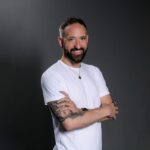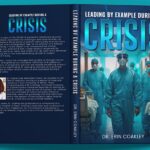Your life is a lie, and you’re smarter than you think.
I was a medical doctor, but now I’m a self-regulated higher-order learning coach. In other words, I teach people to use their brains more efficiently when learning. Over the past decade, I’ve worked with thousands of learners worldwide. But I’ll never forget my first year of coaching.
At the time, I worked out of a semi-basement office. One day, I had a consultation with a first-year university student called Sarah. She was a shy, softly-spoken student who moved to New Zealand from Korea when she was 12. At the time, she was trying to enter medical school and struggling. During the consultation, I explored her learning methods and techniques. Sarah told me about her difficulties and anxieties. She had never been an academically strong student, but she wanted to become a doctor nevertheless.
An hour later, I gave her the full breakdown of my findings. I mapped out which parts of her learning methods probably held her back and how these caused her difficulties. Then, I showed her how they could be adjusted and the steps she would need to take. It was a diagnostic process I was familiar with from my medical days.
Then Sarah cried.
She broke down in tears in that damp basement office, sitting at my consultation desk. I asked her what was wrong, and she said, “I thought I was just dumb”.
She thought she was just dumb…
The reason this moment sticks with me is because it made me realise that my job was not to teach people how to learn. It was to help them see themselves for who they really were.
Sarah was not dumb. She excelled at learning outside of academics. But a life of inconsistent results in school and academic stress had convinced her that she wasn’t good enough. Despite using the same studying techniques as her friends and following the biggest YouTube study gurus, Sarah had never been academically successful.
The only possible conclusion for Sarah was that she wasn’t smart enough.
Over the years, I have worked with countless students like Sarah. Sometimes they are in school and university. Sometimes they are seasoned professionals who still see themselves as a bad learner. And what I have realised is this.
Your past failures do not reflect your intelligence; they reflect your past methods.
Shifting the focus from following others and copying success to examining and adjusting our processes puts us back in control over our learning. You’re never too old, and don’t let yourself believe you’re intelligence is fixed.
Over the last ten years, research has shown that the brain is capable of remarkable change. Research on neuroplasticity has shown that your brain grows and adapts depending on the pressure you place on it. Research on metacognition and self-regulated learning shows that you can learn to optimise your learning ability to overcome obstacles that felt impossible. Studies on growth mindset repeatedly show that if we believe we can become “smarter”, it helps us grow and adapt. In contrast, if we believe our intelligence is fixed, it holds us back.
My work at iCanStudy is based on helping people make this change. So, here are my top 3 tips for kicking things off. First, challenge your beliefs. Recognise the difference between facts and assumptions. Just because we believe something doesn’t mean it’s true. If you believe you “have to” learn or study a certain way, challenge it. Are you sure? If you believe you are only so smart, are you sure?
Second, make tiny adjustments and observe. Experiment with your learning methods, time management, or focus management. If it doesn’t work, think about what you could do differently and try again. Over time, these tiny changes build up to huge effects.
Third, learn about “metacognition”. Knowing just a little about effective learning helps you to do better experiments. You can find resources online, such as the many free videos I upload on my YouTube channel.
If you aren’t convinced this can help you, read what some of my students have said:
Surya says: “I used to have a strong belief in ‘inherent ability’. People and teachers would tell my parents, ‘Math just isn’t for your son. He doesn’t have the natural mindset required for it.’ But after my exposure to the iCanStudy course, I have come to realise that this thinking is nowhere close to the truth; that outcomes are not a product of some naturally gifted ability, but rather that they are only symptoms of processes… this has allowed me to now grow like never before!”
Lubhna says: “Despite putting in countless hours of studying, I still found myself struggling with exam anxiety. I had been conditioned to believe that intelligence and abilities were fixed traits that couldn’t be developed, and I saw setbacks as signs of personal failure. But the iCS program provided me with a new way of learning, one that encouraged experimentation, questioning, and embracing discomfort. Through this process, I gained the confidence to take control of my skills and behaviors, shedding the limiting labels that society had imposed on me. In doing so, I learned that it’s better to try and make mistakes than to live with the regret of not trying at all. The iCS program helped me overcome my fixed mindset towards intelligence and setbacks, opening up new possibilities for growth and self-discovery.”
Justin Sung is a learning coach and consultant, ex-medical doctor, TEDx Speaker, and social entrepreneur. He often works with the faculty of education at Monash University and has a combined social media of over 200,000 followers, where he gives advice on practical learning and self-management.
He is the co-founder and head of learning at iCanStudy, which is focused on creating a lifelong impact by helping people discover how their brains work. “What does the science say? Very few people approach productivity and learning from this perspective.”
For additional information, visit https://icanstudy.com/. For technical information explaining the research behind the methodologies in the course and how it has been applied to transform learning capabilities, visit https://icanstudy.com/how-it-works.
















